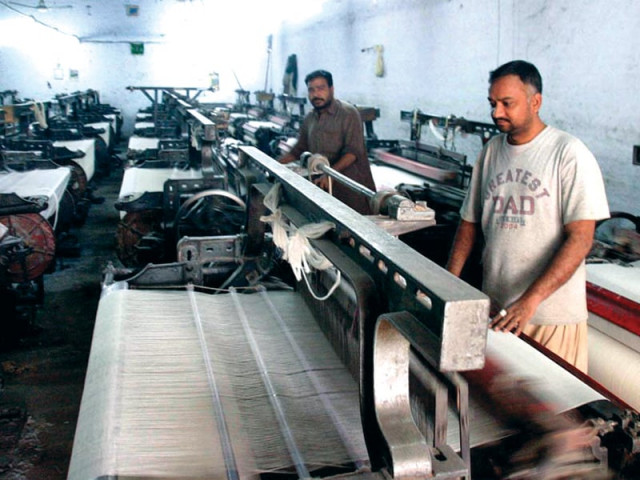Textile ministry steps in, opposes gas outages
Fears exporters will lose benefits of EU’s GSP Plus scheme.

The ministry is apprehensive that as a result of the halt to gas supply, the textile industry in Punjab may lose $3 billion in export earnings in three months during winter, sources say. PHOTO: FILE
The ministry is also apprehensive that as a result of the halt to gas supply, the textile industry in Punjab may lose $3 billion in export earnings in three months during winter, sources say.
In comments on the gas load management plan, which is to be approved by Prime Minister Nawaz Sharif, the ministry said the textile value chain contributed 55% of exports and employed 39% of the industrial workforce.
Considering the current state of affairs with respect to the supply of natural gas and electricity, the ministry expressed fears that textile manufacturers would not be able to get benefit of EU’s GSP Plus scheme if remedial measures were not taken.
“It may be kindly noted that Punjab-based textile industry was allowed to utilise gas for nine months totalling 270 days, but they utilised this facility for only 114 days, making voluntary savings in order to ensure continuation of gas supply all the year round,” the ministry said.
The industry is willing to accept only 100 million cubic feet of gas per day (mmcfd) against the need for 300 mmcfd and this constitutes only 6% of the total gas supply by Sui Northern Gas Pipelines (SNGPL).
“If the existing gas requirements are not met, the textile sector is likely to lose around $3 billion in export earnings in the next three months,” the ministry said.
It was of the view that the proposal to stop gas supply to the industrial sector for seven days a week from December to February and then six days a week in March and April, would have a long-term impact on the textile industry, cripple and make it unviable in the long run.
In view of this situation, the ministry did not support any proposal which would affect textile production adversely.
The Ministry of Petroleum and Natural Resources is seeking approval of the prime minister in order to allow SNGPL to cut off all gas consumers who are covered under the load curtailment schedule during December 2013 and January 2014 depending on demand and supply. This will eliminate the risk of violation and lead to utilisation of existing resources more effectively.
Published in The Express Tribune, December 12th, 2013.
Like Business on Facebook, follow @TribuneBiz on Twitter to stay informed and join in the conversation.



















COMMENTS
Comments are moderated and generally will be posted if they are on-topic and not abusive.
For more information, please see our Comments FAQ